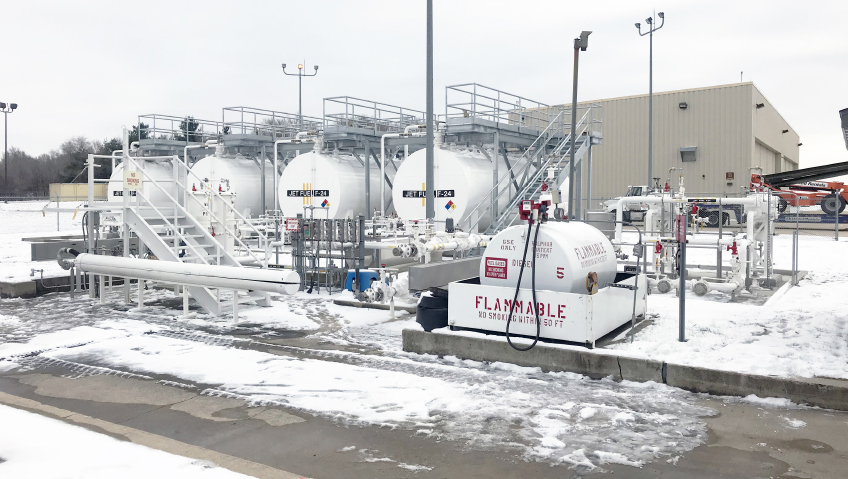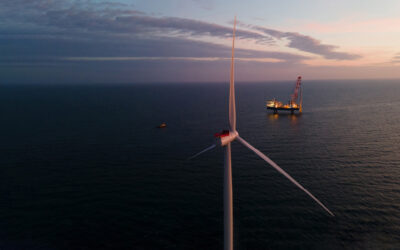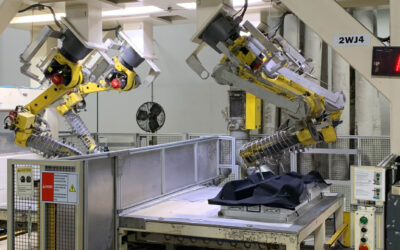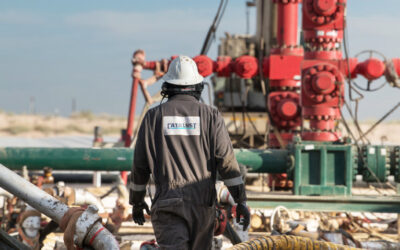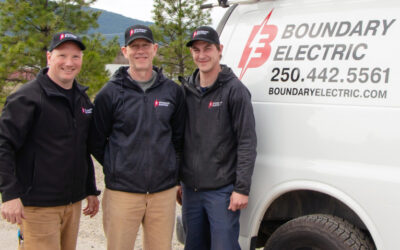For 60 years, the Acterra Group has brought full-service fuel and electrical systems to the entire U.S., bringing expertise to the private sector, and to the demanding federal government and military. President and COO Tad Cooper, the latest of his family to lead, isn’t stopping there…
While the Acterra Group was formally incorporated in 2007, the history of its member companies stretches back to the 1950s.
Cooper’s grandfather, an employee for Standard Oil, was “basically running around Iowa fixing gas pumps,” his grandson recalls. As a cost-saving measure, Standard Oil fired all its salaried employees to rehire them as contract labor. Cooper’s grandfather now found himself self-employed, billing Standard Oil for services rendered. But he adapted, and decided to form his own company.
As the family business grew, it consolidated its niche in the repairing and maintenance of fuel equipment while expanding its reach. In the 1970s, Cooper’s father and grandfather jointly founded a storage tank manufacturing company, seeing a gap in the market: “Most manufacturers were too busy to get the tanks that were needed, so they decided to build them themselves,” he explains.
Serial entrepreneur
The business expanded significantly in the late 1970s when Cooper’s father, Bernard D. Cooper, a “serial entrepreneur,” took over. “Every time he saw a new problem, he formed a new business.”
When Tad and his brother Terry joined in the 1990s, they further refined the family business from what Cooper calls a “convenience store service” to a group capable of servicing fuel systems across the United States, with many federal government contracts.
Today, the Acterra Group maintains branch offices across much of the continental United States, though its headquarters remains in Iowa. In addition to fuel system installation and maintenance, Acterra’s technicians also perform electrical construction and maintenance, ranging from home repairs to major retrofits and new power grids utilizing solar and wind power. From the Midwest to the Rocky Mountains and beyond, Acterra performs maintenance and construction for any project.
Acterra Group’s long experience and broad reach have made it a natural choice for more complex and demanding jobs.
Attractively difficult
“There are a lot of companies in our business that go into the gasoline station world, which is fairly low-margin, fairly repetitive,” Cooper says. “We like to take on more difficult projects. That’s why we like to spend a lot of time in the federal government space.”
Federal projects by nature have more requirements and oversight than private sector work, making it sensible that only professional and experienced businesses tackle them.
Acterra Group has engaged in some federal work for decades, but now, thanks to its long experience and proven competence, is growing much more involved on federal projects. “They’re much more detailed, in technical requirements and safety requirements, than any standard gas station,” Cooper says.
The group is now finishing a major project at Offutt Air Force Base, just outside Omaha, Nebraska. The base is headquarters to, among others, U.S. Strategic Command and the 55th Air Wing, the largest unit of U.S. Air Combat Command. Acterra was contracted for repairs and reconstruction following unprecedented flooding along the Missouri River in 2019. Heavy winter snowfall and the wettest spring on record set new river levels in 42 locations.
“The entire base was flooded,” Cooper recalls. “We spent a lot of time and effort reconstructing fueling systems over there.”
The Offutt project is typical of Acterra’s work for the U.S. federal government, particularly the military. Cooper estimates 90 percent of the group’s federal work is in the defense sector, helping keep American military installations in fighting shape.
“There are bases, whether Air Force or Army, in every single state,” Cooper says. “They may be a small National Guard base, they may be a large airbase, but there are bases throughout the country and they almost all have some kind of fuel.”
With U.S. military spending increasing annually, he sees no reason for this trend not to continue. Particularly as older bases, many built during the Cold War and earlier, see infrastructure and equipment coming to the end of its lifespan.
Driving on asphalt
But while Acterra is heavily involved in defense projects, its reach extends beyond that. The group is expanding strongly into the asphalt sector, working on the design and construction of a major asphalt processing facility in Colorado.
With Acterra’s long history in manufacturing and maintaining storage tanks the group is an obvious choice to construct a facility for storing this intractable substance.
As a longtime player in the fuel service, Acterra is a member of numerous trade organizations across the U.S., including the Steel Tank Institute and Steel Plate Fabricators Association (STI/SPFA); the Petroleum Equipment Institute (PEI), and has recently joined the National Petroleum Management Agency (NPMA). Despite Acterra’s long independent history, Cooper recognizes the benefit of professional cooperation and collaboration.
“The ideas, the engineering and technical specifications that come from those groups, they’re used every single day,” he says. “Anytime we can further our knowledge through trade organizations and get into different markets, it just makes more sense for us.”
Rare talents
Yet despite its large geographic reach, the Acterra Group remains a small employer with around 50 employees. Its central location in the Midwest, while geographically good, also has abnormally low unemployment – which affects Acterra. The group is now working extensively with external recruiters, turning to outside talent to get the skilled workers it needs. “Wherever we can, we try to hire,” Cooper says.
However, Acterra is also heavily reliant on internal mentorship and advancement. Employees are encouraged to look for, recruit and foster talented workers. “That’s actually been a very positive thing for us, with internal sources finding outside people and bringing them in.”
He relates a personal story of mentoring a younger worker, the son of a former Acterra manager, who is now in his fifth year of employment with Acterra. This personal relationship, Cooper remarks, is exactly the model of leadership his father put into place. “That is why we’re in business, to take care of our family but also to take care of our customers, and definitely our employees’ families.”
To nourish these fostering/mentoring relationships, Acterra makes sure to provide competitive salaries and benefits packages for its highly skilled employees.
As so much of Acterra’s work is contractual, the group’s employees already enjoy a large degree of autonomy. Cooper and his management team respect that, generally taking a more hands-off approach than comparable companies: “That’s the one thing I’m big on, to try to let the people that do the work – and know what they’re doing – have the freedom to do it.”
Yet, while Acterra’s employees remain staunchly loyal, finding new qualified workers remains a perennial problem. “We have a large backlog of business,” Cooper relates, “but if I don’t have the people to do it, that doesn’t do any good. And I’m not helping my customers if I don’t have the people to do it.”
It’s complicated
Acterra’s expertise proves in this case to be a double-edged sword, as many of its jobs are complex enough to require a intensive training – which, as a small business, the group cannot yet afford. “You can’t just step in and do my work if you’re just right off the street,” Cooper remarks.
As a result, Acterra does offer certain in-house training. Many of Acterra’s federal jobs require high degrees of professional qualifications and licenses, meaning annual training if Acterra wishes to keep its contracts. “Most of the work we do has a certification behind it, so that individual has to keep that training going on every year.”
Driven by the difficulties of finding suitable staff, Acterra Group is now moving into more automated practices. Laser cutting systems and robotic welding increase efficiency and raise quality, freeing the group’s labor force to perform more complex work.
The group is also examining alternative energy for its facilities. “We’re personally looking at solar for many of our campuses,” Cooper says, seeing not only a more environmentally-friendly option but also financial opportunity.
As the Acterra Group looks forward to its next sixty years, it hopes to continue to deliver its high degree of service. With offices from Chicago to Denver, the group under Cooper’s leadership intends to further move into tank manufacturing and asphalt. “There’s a lot of manufacturing that goes on in those oilfield areas,” he remarks.
If the group’s new asphalt plant in Colorado proves successful, this could be a bold new beginning for Acterra.
Sadly, Bernard D. Cooper, founder and visionary behind the company, passed away in late December of 2019. His obituary can be viewed at https://www.cedarmemorial.com/Obituary/2019/Dec/Bernard-D-Cooper/.

